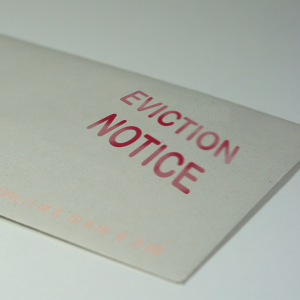
Understanding Foreclosure Processes in Kansas City, Missouri
Understanding the foreclosure processes in Kansas City, Missouri, is paramount for homeowners on the verge of losing their property. Kansas City primarily has Judicial foreclosure, meaning it goes through the court system first.
The sequence begins when a lender files a case against a borrower for not making timely mortgage payments. After this, a summons is served to the homeowners, allowing them to accept or dispute the foreclosure.
If the court rules in favor of the lender, a judgment is entered, and an auction date is set for the property. Homeowners must know that once their home is sold at auction, they may be required to move out according to specific timelines dictated by Missouri state law.
The timetables vary depending on whether an owner-occupier or investor acquires the property. Understanding these details helps homeowners plan their next steps and explore available legal aid in Kansas City. For guidance tailored to your situation, contact us today.
What Are the 5 Stages of a Foreclosure Action?
When facing foreclosure in Kansas City, Missouri, understanding these five stages can help you plan your next steps and manage your move-out timeline effectively:
- Pre-Foreclosure
– Homeowners receive a notice of default after missing mortgage payments. During this stage, you can explore options like loan modification, a short sale, or working with your lender to avoid foreclosure. - Foreclosure Auction
– If no resolution is reached during pre-foreclosure, the property is sold at a public auction. Knowing when and how this auction happens is essential for planning. - Post-Auction Period
– If another party purchases the property at auction, you may receive an eviction notice detailing your move-out timeline and legal obligations. - Redemption Period
– In some states, homeowners have a limited time to reclaim their property by paying the full debt. However, Missouri generally does not allow this after the auction concludes. - Eviction Stage
– If the home is not vacated voluntarily, a court-mandated eviction will be issued, requiring occupants to leave the property by a specific deadline.
Navigating Eviction Notices Post-foreclosure Auction in Kansas City

I think it’s essential that you consider the timelines and mandatory actions when considering eviction notices following a foreclosure auction in Kansas City, Missouri. Issuing eviction notices to the residents of the home is the responsibility of the new homeowners after the property is sold at a foreclosure auction.
In Kansas City, this typically involves delivering a formal written notice that specifies the required move-out date. The time a tenant has to leave the property can depend on various individual factors and local laws, but most of the time, a tenant is expected to leave the property between three and thirty days.
Consumers need to know the rights granted to them under Missouri law and any other protections, and they should speak to the new landlord or his/her lawyer if they require more time. Reaching out to an area housing authority or even an office that provides legal aid would help resolve an eviction case seamlessly.
Understanding every step in this process is essential for dealing with the situation legally and reducing friction during an already trying time. Reliable Cash House Buyers can guide you through each stage to make the process smoother and less stressful
What to Do After Winning a Foreclosure Auction?
Ensure you understand your move-out date and take possession of the property after winning the Missouri-Kansas City auction. Also, make it a point to grab the Certificate of Sale from the auction as proof that the property is yours.
Perform a title search for any active liens or encumbrances that could affect you as a new claimant owner. I’d like to point out that contacting the property’s current residents is essential since they are proprietors; indeed, they might need legal paperwork to leave.
Familiarize yourself with Missouri’s relevant eviction processes and laws, as they will help you legally dislodge any renters or ex-owners living in your property. Also, think about the state of the property and the repairs and maintenance you must perform before moving in or leasing out the property.
Such an attorney will help you address any legal hurdle at any point in the foreclosure process. Understanding these processes enables you to move toward ownership after winning a foreclosure auction in this locality.
Timeline for Moving Out After Foreclosure in Kansas City
When facing a foreclosure auction in Kansas City, Missouri, it is essential to understand the timeline for moving out. After the foreclosure sale is finished, homeowners typically receive a notice to vacate, often issued by the new owner or lender.
This is usually under the legal Missouri guidelines on eviction policies after foreclosure for the Kansas City area. The lessees are typically given no more than thirty days to vacate the premises.
If the possessor stays on the property beyond the time limit specified, the new owner can start the eviction process through legal means. A court-ordered eviction can take several weeks to months, depending on the legal work involved, the court’s workload, and any legal hurdles the former owner may try to throw in the way.
Foreclosure significantly impacts a person’s life, and they must be informed about their rights and responsibilities during the process. They may want to consider contacting a qualified attorney or local housing services and agency so that all regulations, procedures, and checklists are followed and possible options for an orderly exit are investigated. Knowing these dates enables a homeowner to plan and reduce disruptions when relocating following a foreclosure auction in Kansas City.
What Is the 120-Day Rule for Foreclosure?
The 120-day rule for foreclosure is crucial to understand when navigating the move-out timeline after a foreclosure auction in Kansas City, Missouri. This rule, established under federal law, mandates that servicers wait at least 120 days before initiating a foreclosure process on a homeowner.
During this period, homeowners can explore loss mitigation options, such as loan modifications or repayment plans, which can potentially prevent foreclosure. Understanding this timeline in Kansas City, Missouri, is vital as it gives homeowners a window to strategize their next steps and seek legal advice if necessary.
Once 120 days have passed and if no alternatives have been agreed upon, foreclosure proceedings may commence, eventually leading to a foreclosure auction. After the auction concludes and the sale is finalized, occupants typically receive an eviction notice detailing when they must vacate the property.
Being aware of the 120-day rule helps homeowners better manage their circumstances post-foreclosure and allows them to plan accordingly within the confines of local regulations in Kansas City.
How Auctions Affect Homeowners Post-foreclosure in Kansas City

After a foreclosure auction in Kansas City, Missouri, homeowners face a critical shift in their living situation, significantly impacting their move-out timeline. Once the property is sold at auction, the new owner—often a bank or private investor—gains legal rights to the home.
This transition typically initiates when former homeowners must vacate the premises. This timeline can be as short as 30 days in many cases, though it may vary depending on specific circumstances and negotiations with the new property owner.
Understanding these timeframes is crucial for homeowners as they navigate post-foreclosure life. Additionally, while some may receive relocation assistance or “cash for keys” offers to expedite moving out, others might need legal advice to understand their rights under Missouri law fully.
This process can be emotionally and logistically challenging as individuals and families must quickly arrange new housing and address any remaining financial obligations tied to the foreclosure.
Legal Steps Following a Foreclosure Auction in Missouri
After a foreclosure auction in Kansas City, Missouri, homeowners must navigate several important legal steps. Once the property is sold at auction, the new owner typically files for a confirmation of sale with the court.
This process legally transfers ownership from the former homeowner to the purchaser. Missouri law provides a redemption period, during which the original homeowner may retain rights to reclaim their property by paying off the full amount owed plus any additional costs.
However, this right is often waived if stipulated in the mortgage agreement. Individuals facing foreclosure must understand that they must vacate their home by the end of this redemption period unless other arrangements are made.
Consulting with a knowledgeable real estate attorney can help explain these steps and ensure compliance with local laws and timelines specific to Kansas City. Moreover, if eviction proceedings commence after this period, former homeowners must be aware of their rights and responsibilities under Missouri eviction laws to avoid further legal complications.
Understanding Deficiency Judgments Following a Missouri Foreclosure
In Missouri, after a foreclosure auction, homeowners must understand the implications of deficiency judgments. A deficiency judgment arises when the sale of the foreclosed property does not cover the outstanding balance on the mortgage.
Lenders in Kansas City and throughout Missouri have the legal right to pursue borrowers for this remaining debt. The process involves a judicial review where courts assess whether to grant such judgments based on the property’s fair market value at auction compared to its sale price.
Homeowners should know that Missouri law allows lenders to file for a deficiency judgment within one year following the foreclosure sale. It is essential for individuals facing foreclosure to comprehend these potential financial obligations and consider seeking legal advice to navigate any subsequent debt recovery actions by lenders.
Understanding how deficiency judgments work can significantly impact one’s financial planning post-foreclosure in Kansas City, helping former homeowners manage their liabilities effectively.
Tenant Rights and Responsibilities During Foreclosure in Missouri
In Missouri, tenants residing in a property undergoing foreclosure have specific rights and responsibilities that must be understood to navigate the process effectively. After a foreclosure auction in Kansas City, tenants are generally protected by the federal Protecting Tenants at Foreclosure Act (PTFA), which mandates that new property owners honor existing leases or provide tenants with a 90-day notice to vacate.
This protection ensures tenants are not abruptly displaced and have ample time to secure alternative housing. However, tenants must continue fulfilling their lease obligations, such as paying rent and maintaining the property according to the lease terms, even during foreclosure proceedings.
Failure to comply with these responsibilities can lead to eviction regardless of foreclosure protections. Tenants should also stay informed about any communication from the property’s new owner or legal representatives, as understanding these updates can help manage expectations and prepare for potential changes in tenancy status.
During this challenging transition period, engaging with local tenant advocacy groups or legal assistance services in Kansas City can provide additional support and clarification regarding rights under Missouri law.
Preparing for a Foreclosure Auction: What to Expect in Kansas City
Preparing for a foreclosure auction in Kansas City, Missouri, involves understanding the critical steps and timeline associated with the process. Homeowners facing foreclosure should become familiar with Missouri’s non-judicial foreclosure laws, which outline the timeline and procedures leading up to the auction.
Typically, after receiving a notice of default, borrowers have a limited period to cure the default before the lender initiates foreclosure proceedings. In Kansas City, once a trustee sale date is set, it’s crucial to know that properties are sold “as-is” at public auction to the highest bidder.
Potential investor home buyers in Kansas City and other Missouri cities at these auctions should be prepared for competitive bidding and assess property conditions beforehand, since there is often little opportunity for inspection. Additionally, understanding redemption rights and any remaining liabilities is essential for both former homeowners and prospective buyers.
Engaging with local real estate professionals or legal advisors can provide valuable insights into navigating this complex landscape effectively.
Legal Assistance for Homeowners Facing Foreclosure in Missouri

Homeowners in Kansas City, Missouri, facing foreclosure and a subsequent move-out timeline after a foreclosure auction can significantly benefit from seeking legal assistance. During this challenging process, legal professionals specializing in foreclosure defense can provide invaluable guidance on understanding state-specific laws and homeowners’ rights.
In Missouri, the foreclosure process is typically non-judicial, meaning it follows a distinct set of procedures that do not involve court proceedings unless disputes arise. A knowledgeable attorney can help homeowners navigate these procedures, potentially identify any violations or errors in the lender’s actions, and explore all available options to delay or contest the foreclosure.
Additionally, legal experts can assist in negotiating with lenders for more favorable terms or exploring alternatives such as loan modifications or short sales. By securing the expertise of an experienced attorney, homeowners can better understand their move-out timeline after a foreclosure auction and make informed decisions about their future housing arrangements while protecting their rights under Missouri law.
The Role of Lenders and Banks During the Kansas City, MO, Auction Process
In Kansas City, Missouri, the role of lenders and banks during the foreclosure auction process is crucial for homeowners facing foreclosure. Lenders initiate the foreclosure process when homeowners default on their mortgage payments.
Once this happens, the bank schedules a foreclosure auction to recover the outstanding debt. During this period, banks are responsible for notifying the homeowner of the impending auction and ensuring that all legal requirements are met.
The lender’s primary goal is to recoup as much of the loan balance as possible through the auction sale. Banks may engage with real estate professionals to appraise the property and set an appropriate starting bid price at auction.
They also manage communications with potential cash home buyers in St Louis and other cities in Missouri interested in purchasing foreclosed properties in Kansas City. Throughout this process, lenders must adhere to state-specific regulations governing foreclosures, including providing adequate notice periods and proper filing procedures with local courts.
Understanding these dynamics can help homeowners more effectively manage their move-out timelines after a foreclosure auction in Kansas City, Missouri.
Exploring Redemption Periods After Foreclosure Auctions in Missouri
Understanding the redemption period following a foreclosure auction is crucial for homeowners navigating this challenging time in Missouri. After a foreclosure auction in Kansas City, homeowners may still have an opportunity to reclaim their property during the statutory redemption period.
This period allows the former homeowner to pay off the full amount owed on the mortgage plus any additional costs incurred during the foreclosure process. In Missouri, this redemption period typically lasts one year from the foreclosure sale, offering a final window for homeowners to raise necessary funds and redeem their property.
During this time, individuals must be aware of all legal requirements and deadlines associated with exercising their right to redemption. Consulting with legal professionals specializing in foreclosures can guide you through complex processes and ensure that all paperwork is correctly filed within stipulated timeframes.
Understanding these aspects of post-foreclosure procedures can offer hope and clarity for those seeking to regain ownership in Kansas City, Missouri.
Financial Implications of Foreclosure on Missouri Residents
Navigating the financial implications of foreclosure can be particularly challenging for Missouri residents, especially after a foreclosure auction in Kansas City. Once a home is foreclosed, the homeowner’s credit score is significantly impacted, making it more difficult to secure future loans or rental agreements.
Foreclosure can remain on a credit report for up to seven years, affecting financial stability and access to credit. Additionally, Missouri is a recourse state, meaning lenders may pursue borrowers for any deficiency balance remaining after the foreclosure sale.
One potential way for struggling homeowners to avoid foreclosure altogether is by pursuing a For Sale By Owner (FSBO) transaction. By selling the property directly—without involving a traditional real estate agent—homeowners may be able to reduce commission costs, negotiate more flexibly with buyers, and settle outstanding mortgage debt before foreclosure proceedings advance. While FSBO requires effort in marketing, paperwork, and negotiations, it can sometimes provide a faster route to preserving credit and avoiding the severe financial repercussions of foreclosure.
This legal provision can lead to wage garnishments or bank account levies if the borrower fails to repay the outstanding debt. Understanding these financial consequences is crucial for homeowners facing foreclosure in Kansas City to make informed decisions about their move-out timeline and subsequent housing arrangements.
Borrowers must also consider potential tax implications if any forgiven mortgage debt is treated as taxable income under federal regulations. By gaining insight into these financial aspects, Missouri residents can better prepare for life post-foreclosure and explore possible strategies for mitigating long-term economic impacts.
Need to sell your home fast and hassle-free? Reliable Cash House Buyers offers fair cash deals, handles all the details, and skips the repairs. Call (816) 451-0753 for a no-obligation offer, let’s start today!
| FORECLOSING | MORTGAGE FORECLOSURE | NOTICE TO QUIT | EVICTING | MORTGAGES | FIRST MORTGAGE |
| MORTGAGE LOANS | MORTGAGE LENDERS | BANKRUPTCY | BANKRUPTCY PETITION | LAWYER | ENTER A JUDGMENT |
| LEGAL ACTION | COMPLAINT | INFORMATION | STATE OF KANSAS | DEBTOR | TAXES |
| JUDGE | DEFAULTED | LITIGATING | DEEDS | CONSENT | RESTITUTION |
| LIENHOLDERS | POSTAL CODE | ZIP CODES | PRIVACY | INTERNET | THE INTERNET |
| EMAILS | K.S.A. | U.S. | PHONE | MONEY | DEED OF TRUST |
| DEEDS OF TRUST | FORECLOSURE CRISIS | TRIAL | TERMS OF USE | POLICY | MORTGAGE SERVICERS |
| MORTGAGE SERVICING | MARKETING | INTERNET BRANDS | FREDDIE MAC | FANNIE MAE | EVIDENCE |
| DEBT BUYERS | CONTRACTS | CONTRACTUAL RIGHTS | CONFIDENTIAL INFORMATION | AUTOMATIC STAY | CREATE AN ATTORNEY-CLIENT |
| PRIVACY POLICY COOKIE POLICY | CREATE AN ATTORNEY-CLIENT | CREATE AN ATTORNEY-CLIENT RELATIONSHIP |
